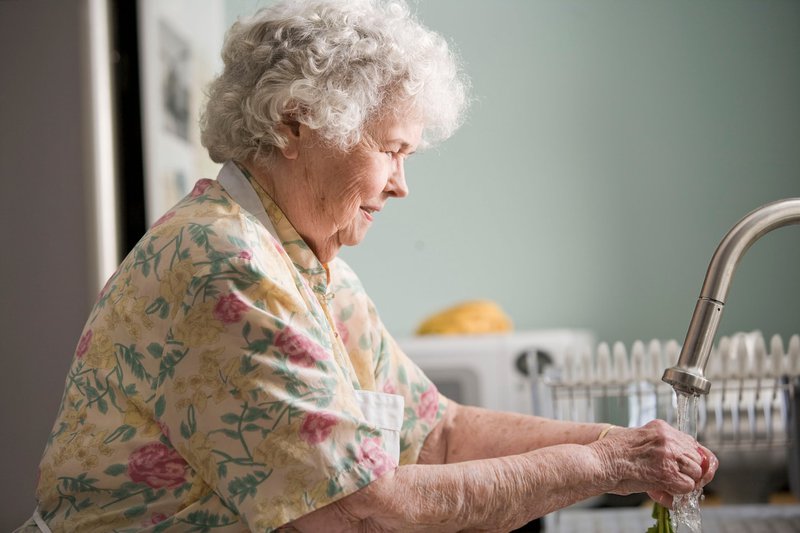What is Case Management for Seniors?
A case manager is a lot like a care coordinator. Generally, a case manager helps seniors and their loved ones to understand and select the care options that are best for them. A case manager serves as a single point of contact that can help evaluate the needs of an aging adult and determine which services will best fit them.
What Does Case Management Look Like?
If you are not already familiar with case management for seniors, you may question what it looks like and how it might help your loved one. You may be wondering, “What is medical case management, and how is it different from general case management?” Each case manager will do things a little differently, but senior case management should be relatively consistent across organizations and individuals. Case management helps you to ensure that your elderly loved one gets the best services and medical attention possible. If your aging loved one lives in Arkansas, you can find case management services near them through the Area Agencies on Aging in their region.
As we age, it becomes harder and harder to manage daily life and to remember routines, appointments, and self-care. A case manager can help with these areas and ensure that your loved one is well cared for as they age. Some of the many types of services of case management for seniors are:
- Care Planning and Management
- Referrals
- Medical Supply Ordering
- Legal Assistance Referrals
- Home-Delivered Meals
- Veterans Programs
- Home Care Programs
- Housing Assistance
Case management for seniors can include a number of different services that may vary from organization to organization. However, most organizations will offer similar services that fit into the categories highlighted above. Here, we will take a deeper look into these different case management services.

Care Planning and Management:
Care planning and management is a case manager's largest category of services. This comes as no surprise because “care management” is part of a case manager's job description. But there are a variety of services that can be included within this category, such as: assessing the client’s needs and identifying which services and programs best suit those needs; locating, coordinating, and managing appropriate services for the client; re-examining the client’s needs over time and altering the care plan as needed; and developing care plans with the client and their loved ones.
Referrals:
A case manager can also provide referrals to help get your loved one the services they need to continue living independently in their home. The case manager will refer your loved one to a service provider or will communicate with the service provider on their behalf to ensure that they receive the services outlined in their personalized care plan. A case manager may also: conduct an initial assessment of all referrals and contact the referred agency or organization on your loved one’s behalf; make referrals to Senior Companion Program services, Home Delivered Meals, or other services; or make referrals for financial, housing, legal, or healthcare services.
Application Assistance:
Applications can be confusing and can require a lot of information that may be hard to remember when you are older. This is another area where a case manager can help. A case manager can be a great resource for filling out applications, whether it is for Social Security, Medicaid, Medicare, or any other healthcare-related program. Examples of how a case manager can help include answering questions about the application process and helping to actually fill out paperwork and applications, including an AR Choices Medicaid Waiver application.
Legal Assistance:
A case manager can refer them to a trusted law firm or legal assistance program.
A case manager can also:
- advocate for the rights of their clients and the senior population in general, and
- provide Medicare counseling.
Home-Delivered Meals:
If your loved one is a senior citizen who is unable to leave their home due to an illness, disability, or frailty, they may be eligible to receive home-delivered meals. Each senior care organization will have its own requirements for this, but a case manager can help to determine whether or not this is a service that your loved one is eligible for.
Veterans Programs:
Often, veterans are eligible for additional support and special resources. If your loved one is a veteran, their case manager can help them identify and use these benefits to get the care that they need.
Home Care Programs:
Creating a home care plan is one of the biggest responsibilities of a case manager. This is where the case manager will work with you, your loved one, and their healthcare providers to create a personalized plan to fit their individual needs. Once this plan has been created, a home care attendant will provide the services outlined in the plan. These services could include help with
- shopping,
- transportation,
- housework,
- personal hygiene,
- medication reminders,
- meal preparation,
- dressing,
- laundry, and
- socialization.
Housing Assistance:
If your loved one is looking for an affordable housing option or assisted living facility, a case manager can help with this search. Not only will a case manager be able to help find a living situation suitable for your loved one’s medical needs, but they can also help to communicate with the people involved in that facility or housing organization.
Conclusion
Continuing to coordinate and manage care plans and daily life can get harder and harder as you age. You may want to look for a case manager to avoid missing out on some of the many benefits or support options available. If you are caring for a loved one, you may want to look into case management services for seniors.
If you live in West Central Arkansas, you can access the amazing case management services available at your local Area Agency on Aging of West Central Arkansas.

Leave a Reply